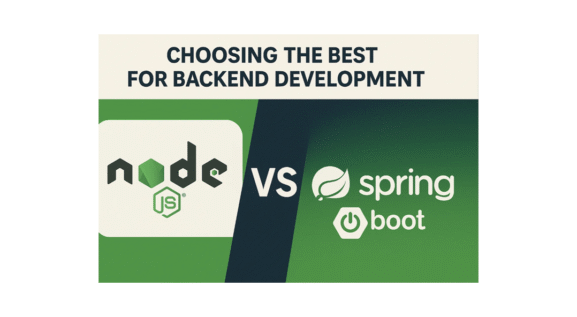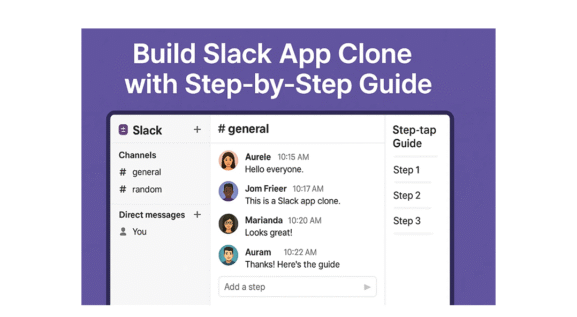GitHub vs. GitLab in 2025: Which Platform Fits Your Needs?
Quick Summary: Choosing the right platform for version control and collaborative software development is critical to your team’s success. GitLab and GitHub are industry giants, but which one aligns with your workflow, budget, and goals? In this blog, we break down the differences, similarities, and key features of both platforms, helping you make an informed decision for your development team or business.
In this blog, we’ll dive into the key differences, similarities, and use cases for GitLab and GitHub. As of 2025, staying ahead in software development requires choosing the right platform that matches evolving trends and business needs.Whether you’re a developer seeking a robust tool for code collaboration or a business leader evaluating DevOps platforms, this comprehensive guide will help you make an informed decision.
What is GitHub?
GitHub is a web-based hosting and development platform built on Git, the popular distributed version control system. Known for its intuitive interface and active community, GitHub simplifies collaboration and code management for developers and teams.
As of 2025, GitHub boasts over 100 million developers worldwide, solidifying its position as the largest host of source code globally.
Key Features of GitHub:
- Repositories: Create public or private repositories to store code, track changes, and collaborate with team members.
- Pull Requests: Streamline code reviews and facilitate seamless merging of contributions.
- Issue Tracking: Organize bug reports, feature requests, and project discussions.
- Integrations: Connect with tools like Slack, Jira, and CI/CD pipelines via GitHub Actions.
- Community Focus: With millions of users and projects, GitHub fosters a vibrant ecosystem of developers contributing to open-source initiatives.
GitHub is particularly popular in the open-source community, where its collaborative features and accessibility shine.
What is GitLab?
GitLab is a comprehensive DevOps platform that extends beyond version control. Built on Git, GitLab offers tools for the entire software development lifecycle, from planning and coding to testing, deployment, and monitoring.
GitLab serves more than 30 million registered users and is trusted by over 50% of Fortune 100 companies for their DevSecOps needs.
Key Features of GitLab:
- Version Control: Similar to GitHub, GitLab allows teams to store and manage code repositories with Git’s core functionalities.
- Built-in CI/CD: Automate testing, building, and deploying applications directly within GitLab.
- Project Management: Organize tasks using issue tracking, Kanban boards, and milestones.
- Self-Hosting Options: Flexibility to choose between cloud-hosted or self-hosted installations.
- Security: Built-in vulnerability scanning, container registry, and SOC 2 certification.
GitLab is ideal for organizations seeking a one-stop solution for DevOps workflows.
Looking to implement GitLab or GitHub in your organization?
Explore software development companies
GitLab vs. GitHub: A Quick Comparison
Here’s a visual summary of how the two platforms compare:
| Feature | GitLab | GitHub |
| Hosting Options | Cloud-hosted and self-hosted options | Primarily cloud-hosted, limited self-hosting |
| Pricing | More cost-effective for large teams | Higher cost for private repos/features |
| DevOps Tools | Built-in CI/CD, all-in-one platform | CI/CD via GitHub Actions, more modular |
| Community | Growing, smaller than GitHub | Massive, vibrant, open-source focused |
| Ease of Use | Feature-rich, steeper learning curve | Intuitive, beginner-friendly |
Differences Between GitLab and GitHub
GitLab and GitHub are both widely used platforms for version control and collaborative software development. While they share some similarities, there are key differences between the two. Let’s explore these differences:
Hosting Options:
GitLab: GitLab offers both a cloud-hosted SaaS version and a self-hosted option called GitLab CE (Community Edition). This gives users the flexibility to choose between a managed cloud environment or hosting GitLab on their own infrastructure.
GitHub: GitHub primarily focuses on cloud-based hosting. It provides GitHub Enterprise for organizations that require dedicated instances, but self-hosting options are more limited.
Pricing:
GitLab: GitLab offers a range of plans, including a free tier, and the pricing is based on the number of users. It provides more cost-effective options for companies with a large number of private repositories.
GitHub: GitHub also offers a free plan for public repositories. However, for private repositories and advanced features, GitHub’s pricing can be relatively higher, especially for larger organizations.
DevOps Capabilities:
GitLab: GitLab positions itself as a complete DevOps platform, providing built-in CI/CD pipelines, project management tools, and more. It aims to offer an all-in-one solution for the entire software development lifecycle.
GitHub: While GitHub has added CI/CD capabilities through GitHub Actions, it may not be as comprehensive as GitLab’s offering. GitHub’s primary focus is on version control and collaboration, with a strong emphasis on its vibrant community and integrations.
Community and Open-Source Collaboration:
GitLab: GitLab has a growing community, but it may not be as extensive as GitHub’s community. However, GitLab promotes collaboration and open-source contribution, offering features like merge requests and a built-in container registry.
GitHub: GitHub has a massive and vibrant community, making it a go-to platform for open-source projects. It fosters collaboration, code sharing, and peer review, with features like pull requests and a vast marketplace of integrations.
User Interface and Ease of Use:
GitLab: Some users find GitLab’s interface to be more complex and overwhelming, especially for beginners. It offers extensive features, but they may require a learning curve to navigate effectively.
GitHub: GitHub is known for its user-friendly interface and intuitive experience. It provides a straightforward and easy-to-use platform, making it accessible for developers of all skill levels.
Security and Compliance
GitLab: Offers enterprise-grade security features like vulnerability management and a built-in container registry, making it ideal for organizations with strict compliance requirements. Its tools support SOC 2 compliance and ensure a secure software development lifecycle.
GitHub: Features Dependabot for automatic dependency scanning and integration with security alerts, which help developers address vulnerabilities in code dependencies. While effective, GitHub’s security tools are more community-driven and less comprehensive than GitLab’s enterprise-focused approach.
Consider these differences in hosting options, pricing, DevOps capabilities, community engagement, and user interface when evaluating GitLab and GitHub to determine which platform aligns best with your specific requirements and preferences.
Similarities Between GitLab and GitHub
While GitLab and GitHub have some differences, they also share several similarities as popular platforms for version control and collaborative software development. Here are some key similarities between GitLab and GitHub:
- Git-Based Version Control: Both GitLab and GitHub are built on Git, the widely used distributed version control system. They leverage Git’s core functionalities, such as tracking changes, branching, and merging, to manage code repositories effectively.
- Web-Based Collaboration: Both platforms provide web-based interfaces that enable developers to collaborate on code repositories. They offer features like code review, commenting, and pull requests to facilitate collaboration and peer review among team members.
- Issue Tracking and Project Management: GitLab and GitHub include tools for issue tracking and project management. Developers can create and manage issues, assign tasks, set milestones, and track progress within the platforms, enhancing organization and productivity.
- Community Engagement: Both platforms foster community engagement and open-source collaboration. Developers can contribute to public projects, explore repositories, and follow other developers. They provide a social element that encourages knowledge sharing, code reuse, and collaboration within the development community.
- Integrations and Extensions: GitLab and GitHub support integrations with a wide range of development tools and services. They offer APIs and marketplaces of extensions, allowing users to extend the functionality of the platforms and integrate them into their existing workflows.
- Continuous Integration and Deployment (CI/CD): Both GitLab and GitHub have features that enable CI/CD pipelines. Developers can automate build, test, and deployment processes, ensuring smooth and efficient software delivery.
While there are differences in specific features, deployment options, and pricing models, GitLab and GitHub share common ground as powerful platforms that facilitate version control, collaboration, and project management in software development. Consider these similarities when evaluating which platform best suits your development needs and workflows.
Real-Life Use Cases
Understanding the real-world applications of GitHub and GitLab can help you visualize how these platforms align with your specific needs.
- GitHub: GitHub is a go-to platform for developers and teams working on open-source projects, startups, and small-scale applications. Its robust community and integration capabilities make it an ideal choice for those prioritizing collaboration and visibility.
- Example: Major open-source frameworks like React and TensorFlow are hosted on GitHub, benefiting from its active contributor base and seamless pull request workflows. These projects thrive on GitHub’s ecosystem of developers who actively review, improve, and expand codebases.
- GitLab: GitLab is favored by enterprises requiring comprehensive DevOps workflows, advanced security, and the flexibility of on-premise hosting. By 2025, GitLab has become a top choice for enterprises managing large-scale projects, thanks to its robust DevOps capabilities and security features.Its all-in-one capabilities make it suitable for organizations managing large-scale, complex projects.
- Example: NASA and CERN use GitLab to handle mission-critical projects, leveraging its built-in CI/CD pipelines and robust security features to ensure efficiency and compliance at scale.
- Example: NASA and CERN use GitLab to handle mission-critical projects, leveraging its built-in CI/CD pipelines and robust security features to ensure efficiency and compliance at scale.
These use cases highlight how GitHub caters to community-driven projects, while GitLab stands out for its enterprise-ready solutions.
Developers vs. Business Leaders: Who Should Choose What?
The choice between GitHub and GitLab often depends on whether you’re a developer focused on collaboration or a business leader prioritizing scalability and cost-effectiveness.
-
Developers:
- GitHub: Ideal for individual developers and teams who prioritize ease of use, collaboration, and integrations with third-party tools. Its intuitive interface and strong open-source ecosystem make it an excellent choice for projects requiring rapid iteration and global contributions.
- GitLab: A better fit for developers working on enterprise projects or full DevOps pipelines. GitLab’s extensive features support all stages of development, from planning to deployment, making it perfect for teams that value end-to-end solutions.
-
Business Leaders:
- GitHub: A strong choice for businesses aiming to foster innovation through open-source contributions or those that want to leverage GitHub’s integrations and partnerships for development efficiency. Its large community ensures that talent and resources are always accessible.
- GitLab: Stands out as a cost-effective, enterprise-ready platform designed to meet the needs of businesses focused on security, compliance, and scalability. Its ability to consolidate DevOps tools into one platform reduces complexity and improves ROI.
By addressing the unique needs of both developers and business leaders, GitHub and GitLab provide targeted solutions to enhance productivity and collaboration. In 2025, these platforms remain at the forefront of innovation, ensuring teams can adapt to the rapidly evolving tech landscape. Whether you’re building the next big open-source project or managing enterprise-level software, there’s a platform to match your vision.
Help clients with GitHub/GitLab? Showcase your expertise on Suggesteron today
Future Trends
The future of software development platforms is rapidly evolving, with AI and automation leading the charge. In 2025, AI and automation are at the core of innovations in platforms like GitHub and GitLab, setting the standard for efficiency and scalability.
- GitHub: By introducing GitHub Copilot, GitHub has positioned itself at the forefront of AI-powered development tools. Copilot assists developers by suggesting code, detecting patterns, and streamlining workflows, enabling faster and more efficient coding. GitHub’s continued investment in AI innovation promises even more tools that simplify and accelerate the development process for teams of all sizes.
- GitLab: GitLab is expanding its reach in AI-driven DevOps capabilities, automating everything from pipeline optimization to monitoring and testing. Its focus on delivering a seamless DevOps experience ensures that organizations can scale and adapt to changing technological demands. Future updates are likely to include more intelligent automation, reducing manual effort and enhancing productivity.
As AI and automation become integral to software development, both GitHub and GitLab are shaping the future of how teams code, collaborate, and innovate.To learn more about the emerging trends influencing the future of software development, check out our post on the latest trends driving custom software development.
Conclusion
In conclusion, GitLab and GitHub are both powerful platforms for version control and collaborative software development, each catering to different needs. While GitLab excels with its all-in-one DevOps solution, including CI/CD and security features, GitHub stands out for its vast community and user-friendly interface, making it ideal for open-source projects and collaboration.
Both platforms share similarities like Git-based version control, web-based collaboration, and project management tools, helping teams streamline workflows. Ultimately, choosing between GitLab and GitHub depends on your team’s specific needs, whether it’s a comprehensive DevOps lifecycle or a collaborative, open-source-driven environment.
For businesses seeking a robust and cost-effective platform to scale, explore more!
Frequently Asked Questions
What are the key differences between GitLab and GitHub?
- GitLab offers a complete DevOps platform with built-in CI/CD, self-hosting options, and more enterprise-focused features, whereas GitHub is more centered around code collaboration with a vast community and open-source project contributions. Both are based on Git but differ in their integrations and feature sets.
Is GitLab suitable for enterprises?
- Yes, GitLab is ideal for enterprises due to its robust security features, scalability, and support for both cloud and self-hosting, making it a great fit for organizations with complex DevOps needs.
What is the pricing difference between GitLab and GitHub?
- GitLab offers more cost-effective plans for large teams, especially when it comes to private repositories. GitHub’s pricing tends to be higher for private repos and advanced features, making GitLab a better option for organizations with a larger number of private repositories.
Are GitLab and GitHub the Same?
- No, GitHub is community-focused with a simpler interface, ideal for open-source projects. GitLab is a comprehensive DevOps platform offering CI/CD pipelines, project management, and self-hosting options.
Which is better: GitLab or GitHub?
- GitHub is great for open-source collaboration, while GitLab is ideal for DevOps workflows, offering built-in CI/CD, security features, and self-hosting. The best choice depends on your project’s needs.
Which is better, GitHub, GitLab, or BitBucket?
- GitHub excels in open-source collaboration, GitLab is best for full DevOps workflows, and BitBucket works well with Atlassian tools. Choose based on your team’s requirements for integrations, collaboration, and CI/CD.
Can I use both GitHub and GitLab?
- Yes, you can use both platforms. Many teams use GitHub for open-source collaboration and GitLab for enterprise-level DevOps, security, and CI/CD pipelines.
Can I link my GitHub to GitLab?
- Yes, GitLab allows you to import GitHub repositories and sync commits. This enables using GitLab’s CI/CD and security tools while keeping your code on GitHub.



